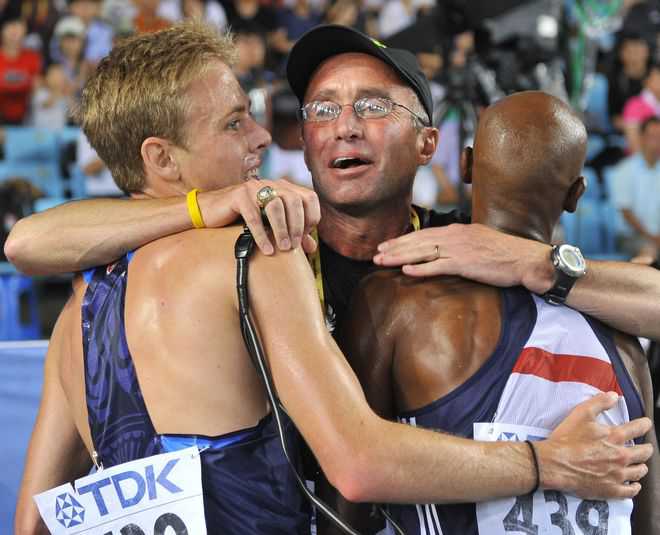Mo’s super-coach Salazar’s road to disgrace
Los Angeles, October 3
Alberto Salazar pushed himself to the brink and beyond as an athlete, and preached the same philosophy as a coach to distance running stars. But the 61-year-old Cuban-born American’s will to win finally went too far, according to the US Anti-Doping Agency (USADA), which has banned him for four years for multiple doping violations. Salazar has been a major figure in American athletics for four decades. He won the 1980, 1981 and 1982 New York Marathons and the 1982 Boston Marathon, and later coached such stars as Britain’s Mo Farah, the 2012 and 2016 Olympics champion at 5,000 and 10,000 metres.
Salazar arrived in the United States as a toddler. His father was a friend of Fidel Castro who fought alongside him in the revolution but later opposed the Communist government. The family moved to suburban Boston, where Salazar won a state cross country crown in 1975. He helped the University of Oregon capture the US collegiate cross country title in 1977, taking national college individual honours the following year.
Olympics dreams
In 1980, Salazar qualified for the US Olympics team at 10,000m, but the Americans boycotted the Moscow Games and Salazar tackled a new challenge: the marathon. He quickly conquered the 26.2-mile (42.195km) event. At 22, Salazar won his marathon debut in New York, then set a career-best of 2hrs 8mins 13secs to defend his title.
In 1982, he took New York and claimed his only Boston Marathon title in what was dubbed the “Duel in the Sun” with Dick Beardsley. After besting Beardsley in a sprint finish, a dehydrated Salazar collapsed. Salazar finished 15th in the marathon at the 1984 Los Angeles Olympics, then trained and competed until retiring in the mid-1990s, when he began moving into coaching, joining with Nike to form the Oregon Project in 2001 to train distance runners.
Big names
The program includes Donovan Brazier — who won the 800m world title Monday as news of Salazar’s ban exploded into the athletics scene — and Sifan Hassan, who won the women’s 10,000m world crown two days earlier.
Stripped of his credentials at the World Championships in Doha, Salazar has vowed to fight the ban, which was handed down for violations including trafficking testosterone, tampering with the athlete doping control process and using banned infusion techniques.
A four-year ban was also issued to Dr Jeffrey Brown, who was a physician for numerous Nike Oregon athletes, and a paid consultant on performance enhancement for the Project, part of a scheme to manipulate testosterone levels without testing positive.
“While acting in connection with the Nike Oregon Project, Mr Salazar and Dr Brown demonstrated that winning was more important than the health and wellbeing of the athletes they were sworn to protect,” USADA chief executive Travis T Tygart said. — Agencies
How the star coach was caught in the net
Steve Magness, who spent 18 months as Salazar’s assistant coach in the project before leaving shortly before the London Olympics, spoke out as a whistleblower when BBC’s Panorama and ProPublica investigated doping allegations around Salazar in 2015. Testimonies from various figures alleged micro-dosing of testosterone, among other suspicious actions. Salazar denied wrongdoing. Mo Farah stuck with him and won another golden double at the Rio de Janeiro Olympics in 2016. But doping allegations nagged. Farah left Salazar in October 2017. The USADA case against Salazar and Brown went to the American Arbitration Association, with hearings conducted in May and June 2018 setting the stage for the arbitration rulings handed down Monday.









